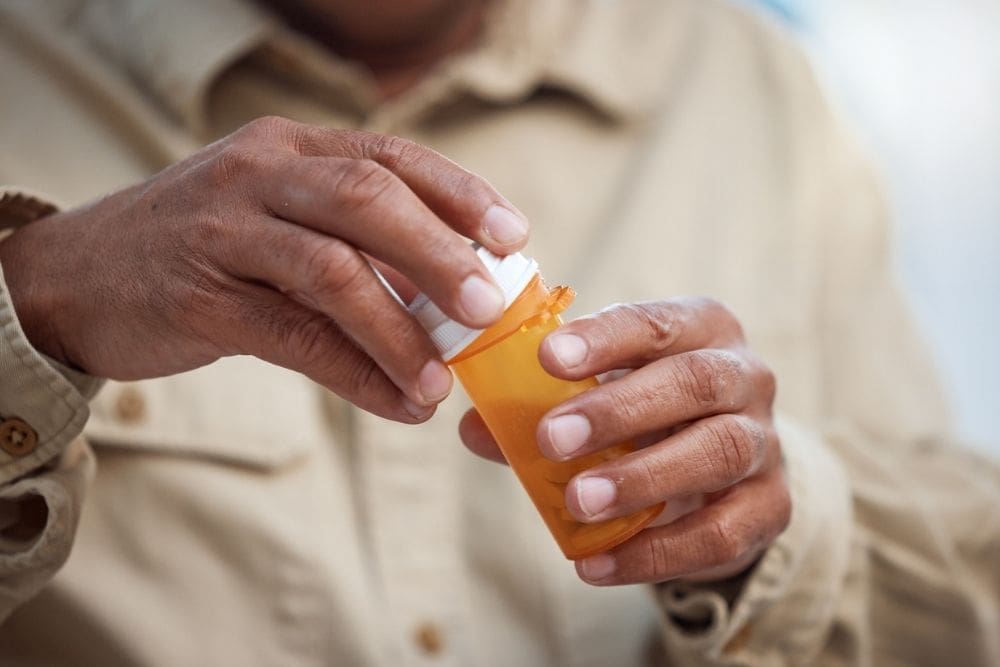We’re used to fast fixes. Take a pain reliever and your headache fades. Take an antacid and your heartburn eases. Pop a cold pill and your congestion clears. But antidepressants don’t work that way. They aren’t “happy pills” that flip a switch. Instead, they quietly help recalibrate your brain’s chemistry, gently guiding you back toward a more balanced mental state.
At Raleigh Oaks Behavioral Health, we want you to know that it’s okay if you’ve recently started antidepressants and don’t feel better right away. Change takes time, but we’re here to provide the support you need at every step of your journey.
What to Expect as Your Antidepressants Start Working
Antidepressants usually begin working behind the scenes within two to four weeks. It’s not dramatic, however. In fact, the first signs of improvement are often so subtle, you might miss them if you’re not paying close attention.
Here’s what those early shifts might look like:
- You sleep a little more soundly. Maybe you’re not waking up as often. Or you fall asleep a bit faster. You might wake up feeling a touch more rested, even if just slightly.
- Your appetite stabilizes. If food has felt unappealing or overwhelming, you may start to feel hungry again. If you’ve been overeating for comfort, you might notice a natural pause between bites.
- You have more emotional “space.” Maybe you’re not snapping at loved ones as easily. Maybe small frustrations don’t spiral into hopelessness. Maybe you start to experience small moments of calm.
- The mental fog begins to lift. You might catch yourself laughing at a show. Or remembering something that made you smile. These glimmers of your old self are meaningful.
By six to eight weeks, more noticeable changes often take shape:
- You feel more emotionally balanced. Your emotions feel less overwhelming, and you’re not as easily knocked off course by the stress of day-to-day life.
- You rediscover an interest in everyday things. Maybe you want to go for a walk. Maybe you text a friend to arrange to meet for coffee. Maybe that book that has been sitting on your nightstand for months finally looks inviting again.
- Tasks feel more manageable. Getting out of bed. Taking a shower. Getting through work. These things might still require effort, but they don’t feel quite as impossible as they once did. Your decision fatigue is improving.
- You may feel a faint sense of hope for the future. Even if you’re not 100% “better,” you might feel like you’re doing better than you were the day before. And that’s something to celebrate.
Healing Isn’t a Straight Line
It’s important to keep in mind that when it comes to managing your depression, progress is not linear. You may have a few good days, then suddenly hit a wall. That doesn’t mean the medication isn’t working. It means your brain is still healing, adjusting, and recalibrating.
Just like a wound scabs over before it fully heals, your emotional recovery will come in layers. Setbacks are normal. When they come, try to remember that this is part of the process.
With time, patience, and support, things do get better. And even the smallest signs of change are signs that something inside you is beginning to shift toward healing.
Why Does It Take So Long for Antidepressants to Start Working?
Most antidepressants, especially SSRIs (Selective Serotonin Reuptake Inhibitors) and SNRIs (Serotonin-Norepinephrine Reuptake Inhibitors), work by adjusting the levels of certain brain chemicals—mainly serotonin and norepinephrine. These neurotransmitters are responsible for regulating your mood, energy, motivation, appetite, and sleep.
Unfortunately, antidepressants don’t just add serotonin like topping off a gas tank. Instead, they change the way your brain processes and responds to these chemicals. That involves slowly rebuilding neural pathways, resetting chemical signals, and creating new patterns in how your brain reacts to stress, emotion, and thought. This process can’t be rushed.
The human brain is incredibly adaptive, but also very cautious. It needs time to adjust to new conditions. It needs time to figure out whether this new chemical balance is safe, sustainable, and worth integrating.
Starting antidepressants is kind of like renovating a house while you’re still living in it. Things shift gradually. Some rooms might feel better right away; others take longer to fix up to your liking.
What If You Still Don’t Feel Better?
People respond differently to different medications, even if their symptoms look similar. What works well for one person might not work for another. There are also many types of antidepressants, each working on the brain in slightly different ways. This means finding the right fit can take some trial and error.
If you’re six to eight weeks in with no real improvement—or you’re dealing with side effects that make things worse—talk to your healthcare provider. You may need to adjust the dose, try something new, or explore different types of support.
What You Can Do While You Wait for Your Medication to Take Effect
Healing takes time, but you don’t have to feel powerless while it’s happening. Here are a few ways to care for yourself right now:
- Reach out to someone you trust. This could be a friend, a family member, or a therapist.
- Spend time outside. Even a few minutes of fresh air and sunlight can help calm your nervous system and lift your mood.
- Try a grounding practice. Deep breathing, stretching, mindfulness, and other forms of grounding can help settle anxious thoughts and reconnect you to the present.
- Stick to a sleep schedule. Sleep is vital for your mental health. Do your best to go to bed and wake up at the same time each day.
- Nourish your body. Good nutrition helps support brain health.
- Be kind to yourself. You’re doing the best you can. Some days, surviving is thriving.
You Deserve Support That Shows Up for You
No one should have to go through this alone. Whether you’re just starting antidepressants or have been trying to find the right one for a while, Raleigh Oaks Behavioral Health is here to support you in your mental health journey. Contact us today for a free, confidential assessment or to learn more about the programs available at our Garner, North Carolina facility.





